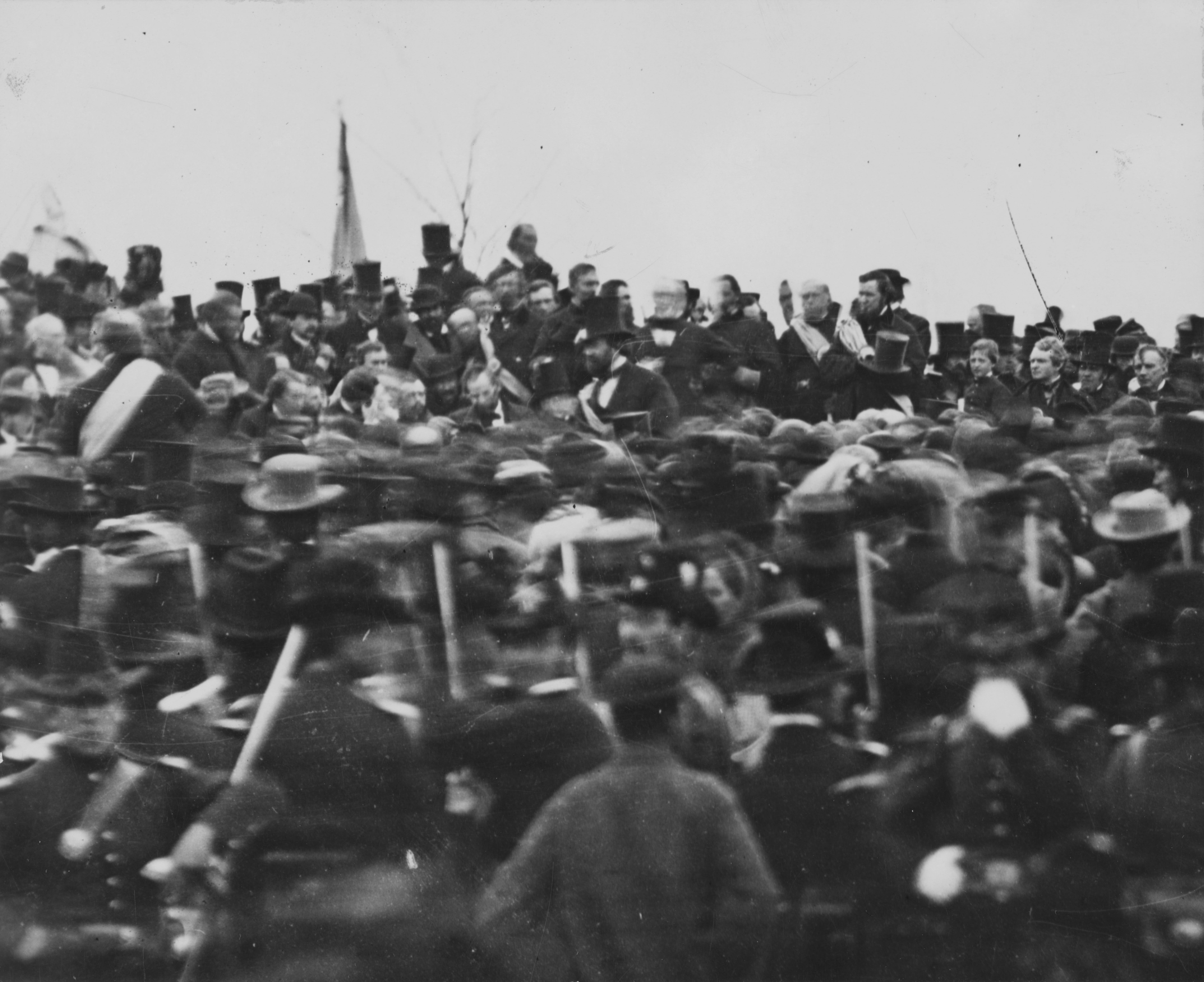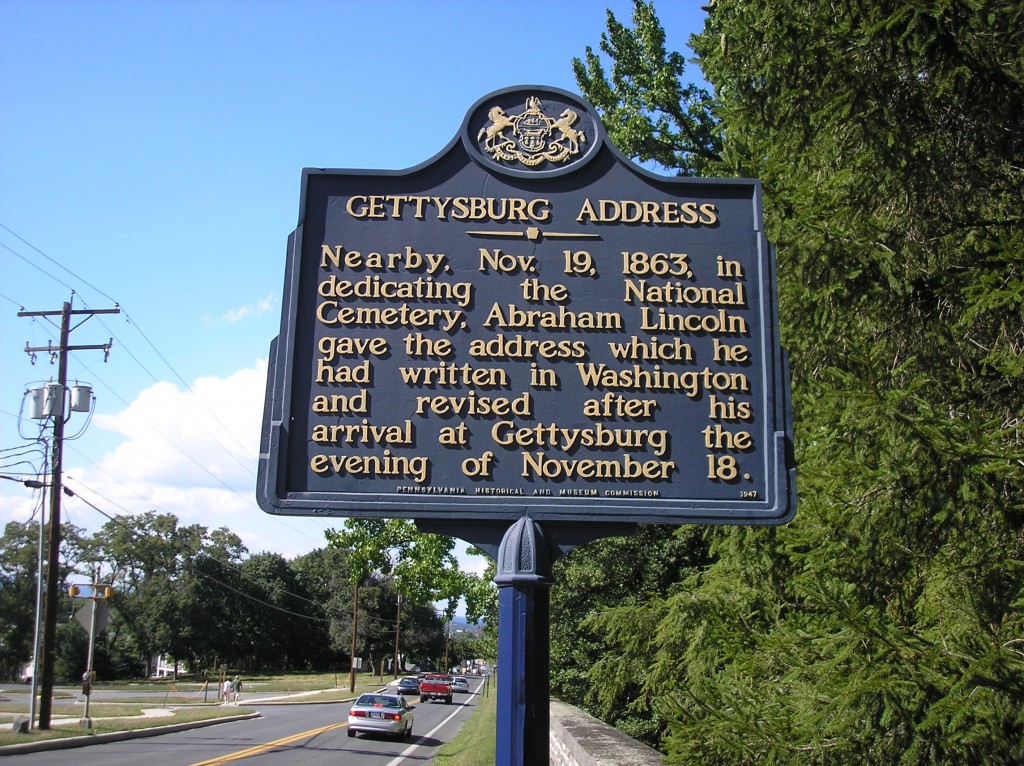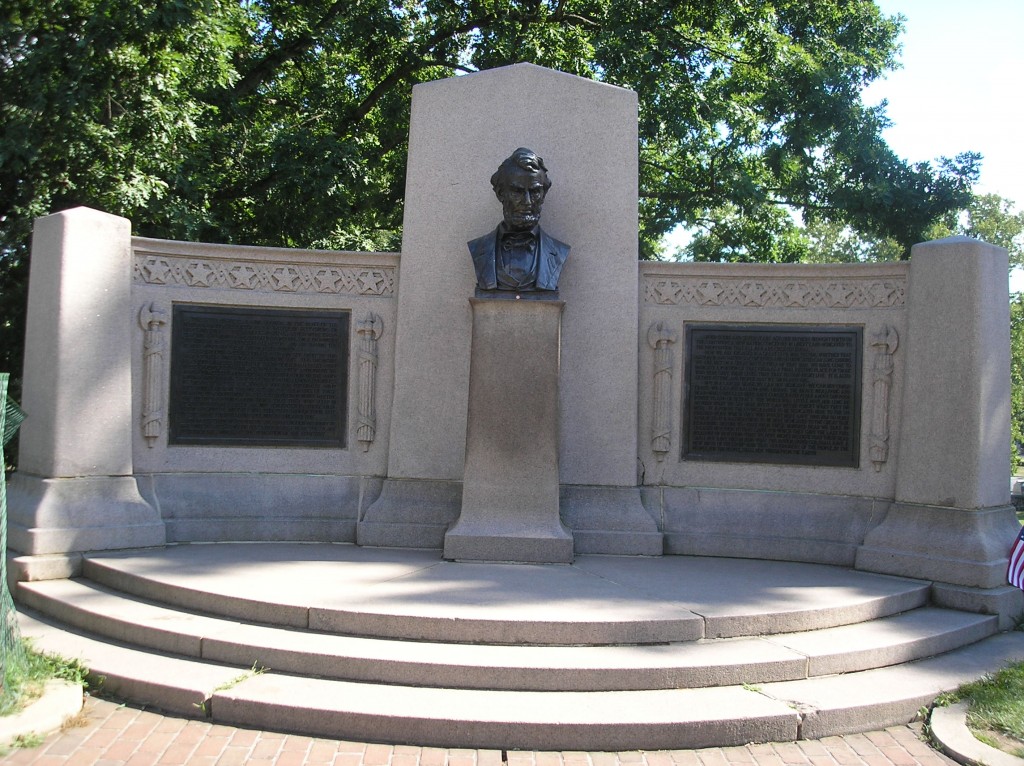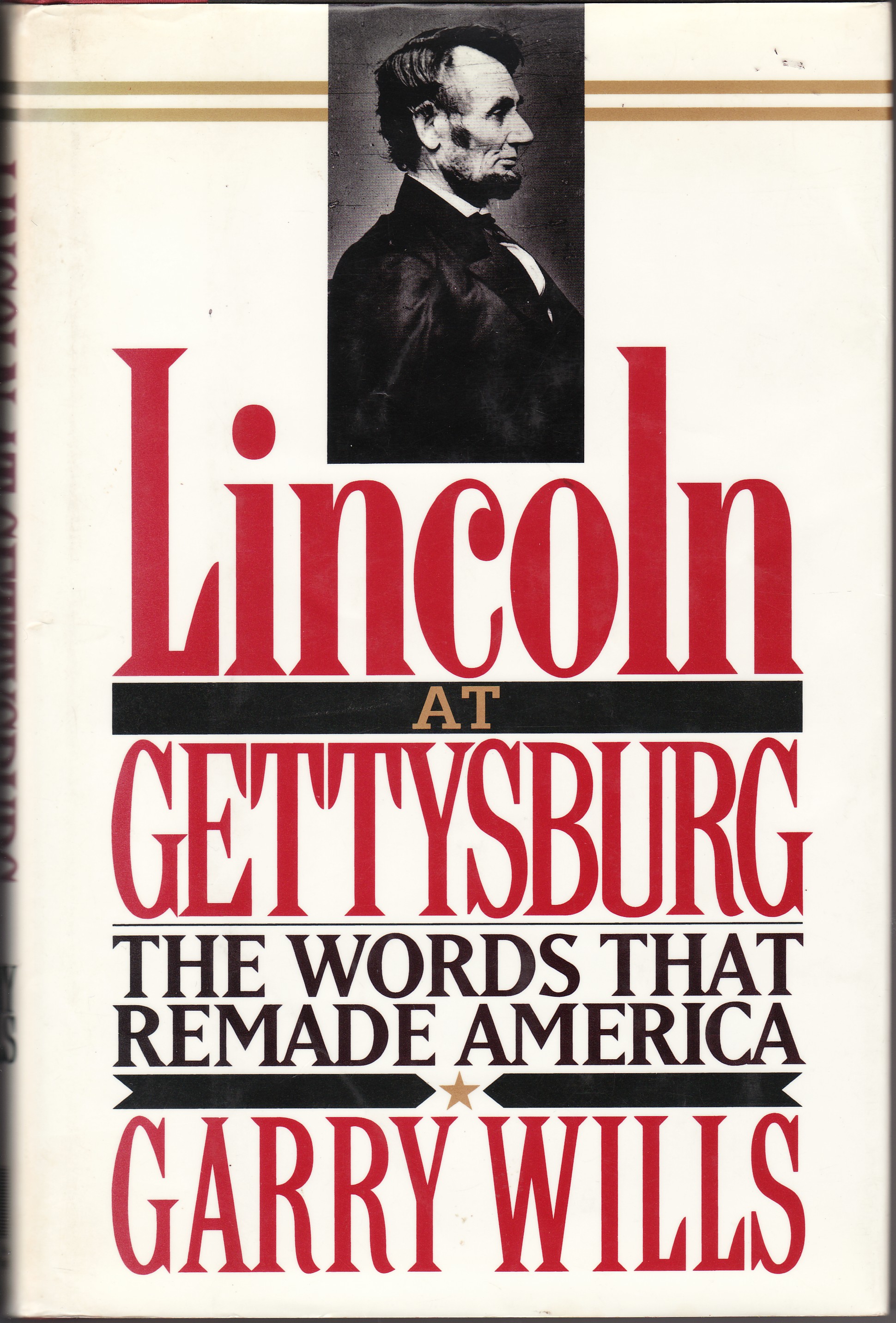The Gettysburg Address
Posted By Norman Gasbarro on January 6, 2013
The Gettysburg Address was delivered by President Abraham Lincoln during the American Civil War, on the afternoon of Thursday, 19 November 1863, at the dedication of the Soldiers’ National Cemetery in Gettysburg, Pennsylvania, four and a half months after the Union armies defeated those of the Confederacy at the Battle of Gettysburg. The historical marker commemorating the address is along the road and just outside the entrance to the cemetery.
GETTYSBURG ADDRESS
Nearby, 19 November 1863, in dedicating the National Cemetery, Abraham Lincoln gave the address which he had written in Washington and revised after his arrival at Gettysburg the evening of 18 November.
The Abraham Lincoln Monument is located near the spot where Lincoln delivered the address and contains a tablet on front of the monument and two plaques, one on the left and one on the right.
The front tablet states:
This monument commemorates
Lincoln’s Gettysburg Address,
19 November 1863.
The Address was delivered
about 300 yards from this spot
along upper Cemetery Drive.
The site is now marked by the
Soldiers’ National Monument.
Dedicated 24 Janu1ry 1912 –
Sculptor, Henry Bush-Brown.
The plaque on the left gives background information:
The several states having soldiers in the Army of the Potomac who were killed at the Battle of Gettysburg or have since died at the various hospitals which were established in the vicinity have procured grounds on a prominent part of the battlefield for a cemetery and are having the dead removed to them and properly buried.
These grounds will be consecrated and set apart to this sacred purpose on Thursday the 19th instant. It is the desire that you as Chief Executive of the nation formally set apart these grounds to their sacred use by a few appropriate remarks. It will be a source of great gratification to the many widows and orphans that have been made almost friendless by the great battle here to have you here personally and it will kindle anew in the breasts of the comrades of these brave dead who are now in the tented field that they who sleep in death on the battlefield are not forgotten by those highest in authority and they will feel that should their fate be the same their remains will not be uncared for.
From letter of invitation to Abraham Lincoln, President of the United States who on 19 November 1863 near this place delivered the address at the dedication of the cemetery.
The plaque on the right gives the words of the Gettysburg Address – which are reproduced below. The version of the address which appears on the plaque is considered the most accurate and final version as it is from the only written copy that actually has Lincoln’s signature.

The only confirmed photo of Abraham Lincoln (circled) at Gettysburg, was taken about noon, just after Lincoln arrived and some three hours before he gave the address. To Lincoln’s right is his bodyguard, Ward Hill Lamon.
Four score and seven years ago our fathers brought forth on this continent a new nation, conceived in liberty, and dedicated to the proposition that all men are created equal.
Now we are engaged in a great civil war, testing whether that nation, or any nation, so conceived and so dedicated, can long endure. We are met on a great battle-field of that war. We have come to dedicate a portion of that field, as a final resting place for those who here gave their lives that that nation might live. It is altogether fitting and proper that we should do this.
But, in a larger sense, we can not dedicate, we can not consecrate, we can not hallow this ground. The brave men, living and dead, who struggled here, have consecrated it, far above our poor power to add or detract. The world will little note, nor long remember what we say here, but it can never forget what they did here. It is for us the living, rather, to be dedicated here to the unfinished work which they who fought here have thus far so nobly advanced. It is rather for us to be here dedicated to the great task remaining before us—that from these honored dead we take increased devotion to that cause for which they gave the last full measure of devotion—that we here highly resolve that these dead shall not have died in vain—that this nation, under God, shall have a new birth of freedom—and that government of the people, by the people, for the people, shall not perish from the earth.
According to historians, the address was finalized at the home of David Wills on the central square in Gettysburg. Lincoln spent the evening of 18 November 1863 at the Wills House.

Wills House, Gettysburg
Wills, a lawyer in Gettysburg in 1863, and an early law student of Republican Congressman Thaddeus Stevens, is credited with the idea of a creating a cemetery to honor those who had lost their lives in the battle. He was given the charge by Pennsylvania’s Governor Andrew Curtin, to carry out the plan.
One of the best books on the Gettysburg Address is Garry Wills’, Lincoln at Gettysburg: The Words That Remade America, published in 1992 by Simon and Schuster. Wills, a Roman Catholic intellectual, was born in Atlanta, Georgia in 1934. His works, which include histories of the church, analyses of political topics such as the Nixon presidency, the Vietnam War, and the Second Amendment, have been mostly controversial, but he has received several honors including the Pulitizer Prize. He is now a Professor Emeritus of History at Northwestern University. The most profound contribution of Wills’ book on the Gettysburg Address is its explanation of how it changed the way Americans see the role of their national government.
——————————
This is the the 76th post in a continuing series on the Battle of Gettysburg and the first on this blog in 2013, the 150th anniversary of the battle.
 ;
;





Comments